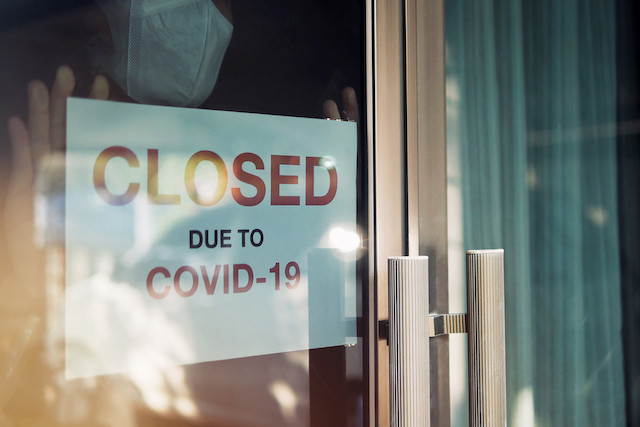The Luxembourg Chamber of Commerce surveyed 2,600 businesses from 8 to 15 April, around a month after the so-called lockdown forced bars, cafés, restaurants and many non-essential shops to close their doors. Of respondents, three-quarters were small and counted 10 or fewer employees.
“Continued and increased aid measures are essential to limit the adverse effects of the health crisis on the country's socio-economic environment,” the chamber of commerce wrote in a report summary, adding that an adjustment of direct aid “is the only way to ensure the survival of small and medium-sized enterprises, especially those in the retail and hospitality and catering sectors.”
How severe are the losses?
Four in ten of the companies surveyed that are operating partially reported they had lost at least half of their turnover. In 54% of cases it was a result of project postponements, but for a third of cases the loss had to be written off. “This has a significant impact on liquidity, with 27% of respondents reporting that they have been short of reserves since 15 April. 72% of the respondents from the hospitality and catering sector have said that they will run out of reserves as of 1 May,” the report recorded.
This sector reported monthly mean liquidity needs during the crisis of €18,000, while for 5% of respondents the liquidity needs exceeded €350,000.
Most businesses used short-time working schemes, in which the government subsidises the earnings of staff when not working. And half of all respondents said they planned to apply for partial unemployment, grants, tax payment deferments and measures in respect of social security contributions. Redundancies for economic reasons remained the exception at the time the survey was conducted.
“For most of the businesses surveyed, the measures taken by the government so far will not be sufficient to help them overcome the crisis,” the chamber of commerce wrote, adding that the hospitality and catering, construction, information and communication, and non-food retail sectors were the most worried about the future. Construction sites reopened as of 20 April, but it remains to be seen how severely the forced halt will impact this sector in the coming months and years.
The government is expected to reflect on the situation on 11 May in order to decide how they will be reopened while mitigating the spread of coronavirus.
“It is precisely these sectors that present the greatest difficulties in terms of liquidity. 6 out of 10 businesses in the non-food retail sector and 7 out of 10 in the hospitality and catering sector will be short of cash as of 1 May,” the report said.
Extend financial aid
The chamber of commerce said that any support given to companies during the month of April should also be extended to the weeks and months to come, as well as short-time working arrangements.
It described the various direct aid as a “welcome breath of fresh air for businesses” and while the benefits of state guarantees on bank loans, approved in parliament on Saturday, will become apparent later, it wants additional measures to be implemented in the short-term.
These could include a readjustment of the aid scheme for businesses in temporary financial difficulty (the law of 3 April 2020), to allocate more resources for direct subsidies rather than repayable aid. Indeed, the survey showed that repayable aid is used only to a limited extent by businesses.
Businesss in difficulty can also get support and advice through the #ReAct initiative, created by the chamber's House of Entrepreneurship. People with questions can call 42 39 39 - 850, or email support@houseofentrepreneurship.lu.
The covid-19 business helpline, providing information on financial and other support for businesses, can also be contacted via 42 39 39 - 445, email covid19@houseofentrepreneurship.lu.
